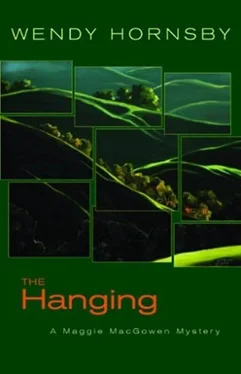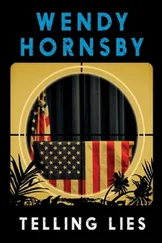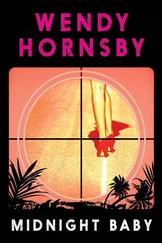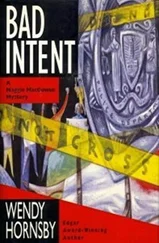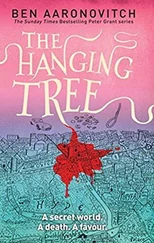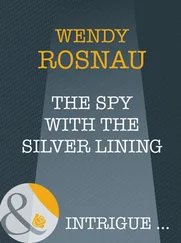During the two previous meetings I’d had with Chin, once when I was hired and again when I appealed for funds for film editing software for my students, I found him to be very intelligent and extraordinarily articulate. He was distinguished-looking, scholarly; he told me his graduate work was in art history. Scuttlebutt was that Holloway used him as a buffer between himself and his increasingly militant faculty-Chin playing Cheney to Holloway’s Bush-so I wasn’t surprised to see him at this meeting. Chin was better qualified for the president’s job than Holloway, who had never taught in the classroom.
Max and I were the two lesser-known quantities to Holloway, so to break the tension perhaps he aimed his focus on the two of us.
“Slumming, Professor MacGowen?” he said, flashing a smile that was not without some charm. The dimples, I suppose.
“You could say so,” I answered without correcting him. In no way was I entitled to add Professor to my moniker. I folded my hands in front of me and looked into his eyes.
“I’ve been watching out for Sly’s interests since he was nine years old,” I said. “It’s a habit by now.”
After a deep breath, Holloway tapped the table in front of Joan. She had strummed the edges of the file in front of her with a long fingernail- thrrp , thrrp, thrrp -during all of the settling in, apparently much to the annoyance of Holloway, who looked at the file as if deciding whether to knock it to the floor or move it out of Joan’s reach. Instead, he addressed Kate.
“Kate, you asked for this meeting. Why don’t you explain what brings us together this afternoon?”
She nodded assent, took a breath and began.
“There seems to be some confusion on your part, Park, about the terms of the award given to Sly Miller for the installation of his artwork,” she said.
“Is there?”
“Out of fairness to all,” she said, “especially to the recipient of the award, we want to make sure that we are all very clear that the winning artist was assured that his work would be displayed, in perpetuity, in the lobby of this building.”
“ His work,” Holloway said, giving the first word pointed emphasis. “I believe the language in the original proffer was ‘his or her original work.’ Am I correct?”
“Yes.” Kate nodded. “It has been brought to our attention that you have said that you intend to remove the artwork produced by Sly Miller in a year’s time.”
Chin up, Holloway looked down his nose at Lew. “You mean the work produced by the Art Department?”
Lew, inarticulate with sudden anger, could only sputter. Kate laid a calming hand on his wrist and faced Holloway.
“What are you suggesting?” she said.
“We agree, the competition was for an original work of art,” Holloway said, calmly. “We all know that though the young man, Ronald Miller, provided an original draft or design sketch, the actual work is the product of the efforts of the Art faculty and several other students.” All eyes were on Lew. “It seems to me that, to save face, we should go ahead and give the award, as planned. But to keep a fraud on permanent display would be-”
“Fraud?” Lew half rose from his chair before Kate got a grip on his shoulder and impelled him down again. “You ignorant troglodyte. You pathetic-”
“Lew,” Kate warned. But he pulled away from her and got to his feet.
“Yes, Sly had production assistance,” Lew seethed, arms thrown wide. “But so fucking what? Do you think that Rodin dug a hole in his backyard and cast his own bronzes? Or that Michelangelo painted the ceiling of the Sistine Chapel all by himself? You-”
From the cant of Kate’s head as she glared at Holloway, I knew he was in trouble. I had never seen Kate lose control in a meeting, but more than once I had seen her opponents whimper as they slithered away in defeat after she let loose with whatever was brewing inside that head.
When she said, “Lew,” again, quietly, he heard something in her voice that made him stop ranting and drop back into his chair.
Sitting straight up, hands primly folded on the table in front of her again, Kate trained her pale gray eyes on Holloway’s face. After a pause to let the air settle, she began.
“The award was granted to Sly Miller by a committee nominated by the campus community and approved by both the Academic Senate and the Board of Trustees. By a letter parsed by the college district’s legal counsel and then issued by the Board, and which reiterated the original terms of the proffer, Mr. Miller was informed that he was the recipient of the award based on the sketches and model he presented to the committee. There is nothing in the terms about producing the finished work without assistance.”
Lew thrust a hand toward Max. “That’s a legal contract, isn’t it, Max? A binding, legal contract.”
“I’d have to see the documents,” Max said.
Joan riffled through the papers in the file on the table in front of her, found what she was looking for, and started to rise. But Max put up a hand and forestalled her. I knew he had read the documents involved; Kate had faxed them to him when she called him that morning. Based on what he found in them, he was prepared to begin legal proceedings on Sly’s behalf if the conditions spelled out in the documents were in any way breached.
Holloway cleared his throat. “I remember a similar situation when I sat on the oversight committee of the Smithsonian.”
All heads turned toward him. Kate glanced at me, rolled her eyes-here it was, the feint.
“A work by Rembrandt that had hung in the National Gallery for many years was determined to be-”
“Mr. Holloway,” Max cut in. “Do you have personal counsel?”
Holloway, just getting wound up in his diversionary tale-telling, still had his mouth open, prepared to say something more, when he furrowed his brows and looked at Max as if he had suddenly spoken in a foreign language.
“Have you personal counsel, Mr. Holloway?”
Holloway furrowed his brow as he asked, “A lawyer?”
“Lawyer, attorney, shyster,” Max said, nodding. “Mouthpiece.”
“Of course.” Holloway’s face was vivid. “But-”
“Now I am just speaking as a friend here, not offering advice, you understand,” Max said. “As I read the situation, the institution, its officers and representatives made a binding commitment to Sly Miller.” Max leaned toward Holloway, and in the very friendliest tone said, “Sir, do not let the boy hear you call him Ronald.”
There was a general chuckling at that, and Holloway looked around as a schoolmarm intent on taking names might.
“As I was saying,” Max continued, still smiling, speaking in a friendly tone, leaning back in his chair, folded hands resting on his belly. “If it is your intention to breach the terms of the institution’s binding commitment, exercising authority not granted to you by that institution, any action you take shall not enjoy the protection and shield of the institution. That is, you would be acting as a private citizen. And it would be as a private citizen that you and your counsel would then, necessarily, meet Mr. Miller and his counsel in court.”
“Are you representing Ronald Miller?” Holloway asked.
“Does Sly need representation?” Max asked pointedly. “So far, I am only here to take my niece to lunch, sir. If I run into the boy, I may ask him to come along; I’ve known him for years.”
There was a moment of silence. All eyes were on Holloway, waiting.
“Young Mr. Miller must have influential friends indeed, if he can afford your advice, sir.”
“I’ll take that as a compliment,” Max said.
“Park?” All heads turned toward Kate. “Are we agreed? The terms of the award remain as originally written, and there will be no attempt by you to alter them?”
Читать дальше
